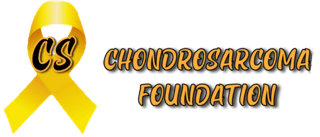Research Article of Interest for Patients Considering Immunotherapy in Treating Chondrosarcoma
Immunotherapy: A New (and Old) Approach to Treatment of Soft Tissue and Bone Sarcomas
MICHAEL J. NATHENSON, ANTHONY P. CONLEY, b EDWARD SAUSVILLE,
Center for Sarcoma and Bone Oncology, Dana-Farber Cancer Institute, Boston, Massachusetts, USA; Department of Sarcoma Medical Oncology, MD Anderson Cancer Center, Houston, Texas, USA; Department of Medicine, Greenebaum Cancer Center, and University of Maryland School of Medicine, Baltimore, Maryland, USA
ABSTRACT: Soft tissue and bone sarcomas are a rare and heterogeneous form of cancer. With standard of care treatment options including surgery, radiation, and chemotherapy, the longterm survival is still low for high-risk soft tissue sarcoma patients. New treatment strategies are needed. Immunotherapy offers a new potential treatment paradigm with great promise. Immunotherapy of soft tissue sarcomas dates back to Dr. Coley’s first use of toxins in the late 1800s. A variety of strategies of immunotherapy have been tried in soft tissue and bone sarcomas, including various vaccines and cytokines, with limited success. Results of these early clinical trials with vaccines and cytokines were disappointing, but there are reasons to be optimistic. Recent advances, particularly with the use of adoptive T-cell therapy and immune checkpoint inhibitors, have led to a resurgence of this field for all cancer patients. Clinical trials utilizing adoptive T-cell therapy and immune checkpoint inhibitors in soft tissue and bone sarcomas are under way.
This paper reviews the current state of evidence for the use of immunotherapy, as well as current immunotherapy strategies (vaccines, adopative T-cell therapy, and immune checkpoint blockade), in soft tissue and bone sarcomas. By understanding the tumor microenviroment of sarcomas and how it relates to their immunoresponsiveness, better immunotherapy clinical trials can be designed, hopefully with improved outcomes for soft tissue and bone sarcoma patients. The Oncologist 2018;23:71–83 Implications for Practice: Immunotherapy is a promising treatment paradigm that is gaining acceptance for the management of several cancers, including melanoma, renal cell carcinoma, prostate cancer, and lung cancer. There is a long history of immunotherapy in the treatment of soft tissue and bone sarcomas, although with little success. It is important to understand past failures to develop future immunotherapy treatment strategies with an improved possibility of success. This article reviews the history of and current state of immunotherapy research in the treatment of soft tissue and bone sarcomas, with particular regard to vaccine trials, adoptive T-cell therapy, and immune checkpoint blockade.
See http://www.TheOncologist.com for the article available online
